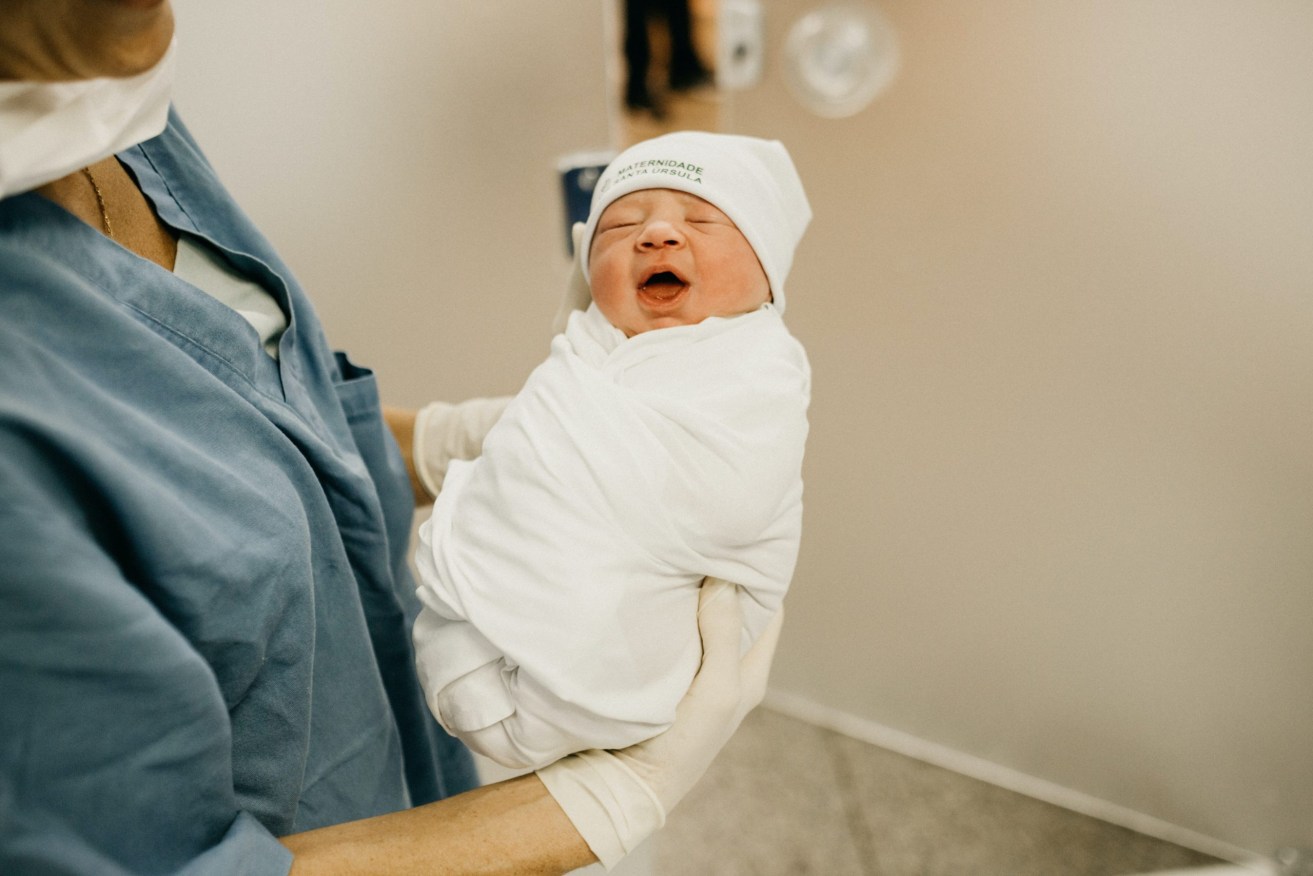Baby bump: Govt urged to deliver on rural maternity crisis
Queensland’s rural doctors are stepping up pressure on the Morrison Government to play a more central role in the delivery of birthing units in rural communities.


Photo: Jonathan Borba/Unsplash
Politicians from across party lines heard Regional Doctors Associaton of Australia president Dr John Hall, formerly a GP at Oakey, tell them that better services for rural women and their families can’t be left solely to State Governments to resolve.
In a statement issued before his address, Hall said rural patients don’t expect brain surgery at their local hospitals, but they should be entitled to maternity services as a basic human right.
“While a genuine commitment by state governments is the catalyst needed to save existing maternity units from closure, and even re-open some units, the Federal Government also has an essential role, through its hospital funding agreements with the States, and its role in ensuring there is the skilled health workforce being trained and supported to deliver these services,” he said.
“When a rural maternity unit is closed or downgraded, there is a huge adverse impact on local women, their babies and families.
“But there is also an enormous cost to the wider local community, as doctors and other highly skilled health professionals are forced to move elsewhere to work in the field they were trained and do the work that they love.
“When a medical service loses these staff, the resulting workforce shortage and the resulting reduction of procedures carried out at the local hospital means the wider community also suffers from a decline in health services they could previously access locally.”
Chinchilla maternity ‘effectively’ closed
Hall’s presentation in Canberra comes as the Rural Doctors Association of Queensland (RDAQ) engages in a campaign to restore full birthing services to Chinchilla on the Darling Downs.
RDAQ president Dr RT Lewandowski told InQueensland that the hospital’s birthing service remains officially “on bypass” even though the last planned delivery at Chinchilla occurred in 2018.
“It’s not unusual for a hospital to go on bypass for services over a matter of hours when they’re faced with an unexpected staff shortage or have someone with critical skills in a particular area temporarily absent,” he said.
“But to stay on bypass for birthing for three years means the Chinchilla maternity unit is no longer operating. It is closure by stealth.”
Lewandowski said the effective shutdown of Chinchilla’s birthing unit was putting strain on women in the local catchment, which extends beyond the town of Chinchilla with a population of almost 7000, to communities such as Taroom, Wandoan and Moonie.
“And the data shows that they are opting for surrounding hospitals, like Dalby and Toowoomba mainly, but also Roma and Kingaroy, and in some cases Brisbane,” he said.
Lewandowski said maintaining birthing services was complex, but required the will of Queensland’s local district Health and Hospital Services (HHS), with support from government, to prevent closures.
“I think the local Darling Downs HHS is just taking the easy option and saying to women in these districts that you can take Dalby or Toowoomba as your next best options,” he said.
“That means a long drive for some of these women, potentially putting them in a life-threatening situation for mother and baby, if they have to birth on the side of the Warrego highway as a worst-case scenario.
“Given what’s at stake here, there seems to be a lack of commitment in any tangible form from either the health service or the Minister (Yvette D’Ath) to reopen Chinchilla.”
Lewandowski’s frustration is shared by Hall, who told politicians in Canberra that Queensland still remains the gold standard for revitalising rural maternity units, but vigilance was required to ensure progress didn’t backslide.
“There needs to be a genuine investment in the service – and in the local health workforce – to keep a maternity unit open. We saw this in Queensland a number of years ago, and it resulted in previously closed services being re-opened that now are thriving,” he said.
“More state governments need to show this commitment, rather than finding every excuse under the sun to shut rural maternity services down, and the Federal Government needs to ensure they are doing all they can to support this.
“We have seen this starting to happen in some areas, but we must pull out all the stops now, to ensure there is a viable and growing health workforce in the bush.
“Women and families need this service to be available within a reasonable distance of their home. Not everyone has the ability to relocate for up to a month pre-birth if they need monitoring.
“Rural maternity services are key to providing quality medical care close to home for the entire community, and they must be protected, supported and reinstated where necessary.”
A Queensland Health spokesperson said midwives with clinical experience were being encouraged to work in regional Queensland hospitals including Chinchilla Hospital.
The spokesperson did not clarify if a midwifery model would be the government’s preferred approach over trained doctors in rural birthing units under stress.
They did, however, point out that despite recruitment challenges, antenatal and postnatal care had always been provided at Chinchilla Hospital.
“Following consultation with the community, a Midwifery Group Practice (MGP) was established with antenatal and postnatal care provided at the Chinchilla Hospital with their known midwife travelling with them to Dalby for birthing,” they said.
“We’ve continued to ask mums and families about their experiences with the MGP and have received extensive positive feedback including the suggestion of accommodation in Dalby for families.
“We listened and provided a two-bedroom, fully furnished unit for expecting women and their families at no cost.
“Dalby Hospital is safely able to provide full care to expecting mums from antenatal through to birth and postnatal care.”
However in further comments to senior federal government MPs, including Deputy Prime Minister Michael McCormack and Rural Health Minister Mark Coulton, Hall said the answer to securing stronger, more sustainable rural birthing was the provision of more doctors trained under the Queensland-born, now nationally-adopted ‘rural generalist pathway’.
Hall said the Commonwealth needed to move quickly with the program, ensuring doctors with obstetric and anaesthetic qualifications could find a rewarding career in the rural communities that need them.
“It also means ensuring that measures designed to attract more doctors to rural and remote communities are actually fulfilling that purpose,” Hall said.
“And it means delivering more rural training options, to ensure that medical students and junior doctors who are keen on working in rural and remote practice can do more of their training in rural locations, and be given opportunities to experience rural medicine and in particular rural obstetric services.”








